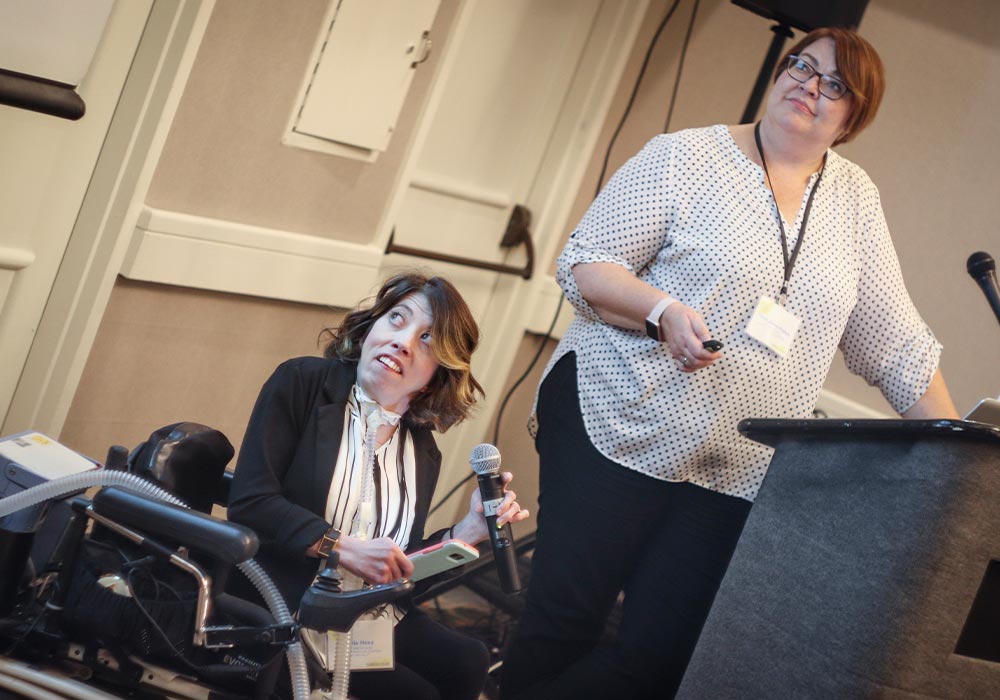Employers
Answering Your Questions
As an employer, you may be interested in hiring a youth with a disability, but may not know how to get started. As a Transition Specialist, you may have questions about how to work effectively with local employers. As a service provider, you may have questions about best practices in supporting youth and young adults with disabilities in employment. Having questions is the first step, but it is also important that you act.

This section of the YES! Center website is for employers and disability employment service providers (such as school transition programs, Vocational Rehabilitation or community supported employment staff) looking for information on how they can take the first steps towards hiring and supporting youth and young adults with disabilities in employment. If you don’t find the information you are looking for, feel free to contact us directly – we are happy to help.
What is Customized Employment?
Customized employment (CE) refers to competitive integrated employment, for an individual with a significant disability, that is based on an individualized determination of the strengths, needs, and interests of the individual with a significant disability. Customized Employment is designed to meet the specific abilities of the individual and the business needs of the employer, and is carried out through flexible strategies. Check out this document from the Workforce Innovation Technical Assistance Center (WINTAC) to learn more about the Customized Employment (CE) Implementation Roadmap.
What are the benefits of hiring youth and young adults with disabilities?
We understand, as an employer, you are concerned about your business, and making the best decisions to make your business a success. You may not know much about having employees with disabilities or the services that are available to you to ensure successful placements. You may have questions about risk and if they can do the job. Just know that countless employers all across the country have found that hiring hard-working youth and young adults with disabilities and the employment services that you receive has had a positive impact on their business. You may find that the benefits are more far ranging and impactful than you could have imagined.
Disability Employment
The federal government’s webpage for recruiting and hiring persons with disabilities, administered by the Office of Personnel Management (OPM).
Getting Hired Website
This website is dedicated to helping inclusive employers hire professional individuals and veterans with disabilities.
Hiring People with Disabilities
This website, by the U.S. Small Business Administration offers information on various programs that encourage the recruitment and hiring of people with disabilities.
Hiring People with Disabilities
The U.S. Department of Labor (DOL) provides many resources on recruiting and hiring people with disabilities. Specifically, its Office of Disability Employment Policy (ODEP), promotes policies and coordinates with employers and all levels of government to increase workplace success for people with disabilities.
How can career exploration be beneficial to your organization?
Working with youth and young adults, including those with disabilities, to explore different types of careers to find one that fits their strengths and interests can produce an on-going source of employees for your business operation. Employers can benefit from this process in many ways by providing opportunities for job shadowing and informational interviews to creating internship programs or being a mentor-employer. All of this can save money on recruitment and meet future labor needs.
Career Exploration in Action
This brief provides practical examples and resources used by promising and exemplary youth programs to engage youth in career exploration. Developed and maintained by the National Collaborative on Workforce and Disability (NCWD/Youth).
Youth.gov Website
This site is the U.S. government website that helps you create, maintain, and strengthen effective youth programs. This webpage offers information on Career Exploration & Skill Development.
NCSET Website
This website provides Frequently Asked Questions on Career Guidance and Exploration. It was developed by the National Center on Secondary Education and Transition at the Institute of Community Integration at the University of Minnesota.
How can work experiences be beneficial to your organization?
Working with youth and young adults, including those with disabilities, to have paid and unpaid work experiences at your business, can supplement your workforce’s labor needs and assess job performance in advance of making a hiring decision. These work experiences can save you time and money to recruit and hire new employees and increase your job retention rates when they transition from work experiences to paid employment.
U.S. Department of Labor Website
The DOL’s website providing information on Career Preparation and Work-Based Learning Experiences.
Engaging Youth in Work Experiences
This Innovative Strategies Practice Brief provides practical examples and resources used by promising and exemplary youth programs to engage youth in work experiences. Developed and maintained by the National Collaborative on Workforce and Disability (NCWD/Youth).
What to Know about Work-Based Learning Experiences for Students and Youth with Disabilities
This fact sheet was created to address the compatible outcome goals and policy priorities identified in The 2020 Youth Transition Plan: A Federal Interagency Strategy and provides a quick glance of available resources. It was created by the Federal Partners in Transition (FPT). FPT is a workgroup with representatives the Department of Education, the Department of Health and Human Services, the Department of Labor, and the Social Security Administration.
What is vocational rehabilitation and how can their services benefit your organization?
Each state has a federally-funded Vocational Rehabilitation program. The name of your state’s program may be slightly different, but their goals are consistent – assist people with disabilities prepare for, find, and maintain employment. Employers might be unfamiliar with their processes and language. However, VR represents a key partner in helping employers effectively hire and support employees with disabilities. Vocational Rehabilitation programs can be a source of pre-qualified job candidates and may have funds to support work experiences, On-the-Job Training (OJT) and job accommodations.
List of Local Vocational Rehabilitation Offices
This site offers visitors a comprehensive listing of State Vocational Rehabilitation Agencies, prepared by the Job Accommodation Network (JAN), a service of ODEP.
Work Support
This site houses information, resources, and research about work and disability issues from Work Support, Virginia Commonwealth University’s Rehabilitation Research and Training Center (VCU RRTC).
What other providers offer employment related services to employers on behalf of people with disabilities?
There are many organizations that provide employment related services and supports, and can recommend job candidates with disabilities that meet your labor needs. Employers and employment service providers can develop effective partnerships that reduce your cost to recruit and hire employees and meet your labor needs on an on-going basis.
Services for Adults with Disabilities
Once a student with a disability leaves high school, other agencies are available to assist with putting the individual in contact with helpful resources. The Center for Parent Information & Resources prepared this listing of resources for adults with disabilities to help them get started. This listing contains organizations that provide information, referral, and/or direct services.
What is the role of a "Job Coach"?
Job coaches provide essential, on the job, supports to youth and young adults with disabilities. Employers may have questions about the scope of the role of a job coach. Providers supplying the job coaching services, can save employers time and money related to orienting, training and supervising employees as they integrate into the workforce. Through training and support, job Coaches can also expand the tasks and responsibilities of an employee over time. The use of Job Coaches can increase job performance and retention for those they support.
Accommodation and Compliance Series: Job Coaching in the Workplace
JAN’s Accommodation and Compliance Series is a publication designed to help employers determine effective accommodations and comply with title I of the Americans with Disabilities Act (ADA).
Supporting Individuals with Significant Disabilities: The Roles of a Job Coach
This document is Virginia Commonwealth University’s RRTC fact sheet on Job Coaching.
How do natural supports in a work environment benefit your business?
At times, youth and young adults with disabilities may require additional support to do their job tasks. Sometimes this support is provided by a job coach, and sometimes the support is provided by the business and fellow employees. This is referred to as “natural supports”. Natural supports create minimal disruption to the work environment and allow peers to play a role in supporting their fellow employees as well as creates a more inclusive workplace culture. Natural Supports also recognize the ability of employers to accept and accommodate a diverse array of employees
The Importance of Natural Supports
A publication about Natural Supports by Think College, a project of the Institute for Community Inclusion (ICI) at UMass Boston, a University Center for Excellence in Disability.
Supported Employment and Natural Supports: A Critique and Analysis
This paper provides a brief but critical review of the concept of natural supports, by Worksupport, a web portal that highlights Virginia Commonwealth University’s funded projects on many topics related to the employment of individuals with disabilities.
How do you identify accommodations in the workplace?
Many times, people hear the term “accommodation” in the context of supporting an individual in the workplace and immediately think of a high-tech assistive device and worry about cost. While this might occur, most often, an accommodation is a commonsense solution that just requires a little bit of problem solving. An accommodation is any strategy that:
- Eliminates a specific barrier, or lessens the impact of that barrier
- Helps a person feel competent, confident, and comfortable
- Highlights a person’s strengths
Some examples of creative problem solving accommodations include changes in procedure, task restructuring, task reassignment, giving instructions in different formats, flexible schedules, and assigning a workplace mentor, among others. In many instances, there is funding available for some workplace accommodations.
Job Accommodation Network’s Website
JAN’s homepage, providing free, expert, and confidential guidance on workplace accommodations and disability employment issues.
Disability Employment: Reasonable Accommodations
OPM’s webpage on Reasonable Accommodations and Disability Employment.
Disability Employment: Providing Accommodations
OPM’s webpage on Providing Accommodations and Disability Employment.
Help Your Young Adult Learn About Accessing Accommodations After High School
A publication was written by the PACER Center, a parent training and information center for families of children and youth with all disabilities from birth to young adults.
ADA National Network’s (ADANN) Website
The ADANN provides information, guidance and training on the implement the Americans with Disabilities Act (ADA) in order to support the mission of the ADA.
What are some tips for partnering with high school transition programs?
Federal law allows some youth and young adults with disabilities to access high school transition services beyond the age of 18. These transition programs can have a pool of qualified candidates for work experiences that meets some of your labor needs. Employers and employment service providers can seek to partner with transition programs to provide career exploration, work experiences, and placement related services.
A Guide to Developing Collaborative School-Community Business Partnerships
This publication is by TransCen, Inc. in partnership with The National Technical Assistance Center on Transition (NTACT).
Partners > Benefits Chart
This resource features an illustrated flow chart adapted from the Guide to Developing Collaborative School-Community Business Partnerships, listed above.

